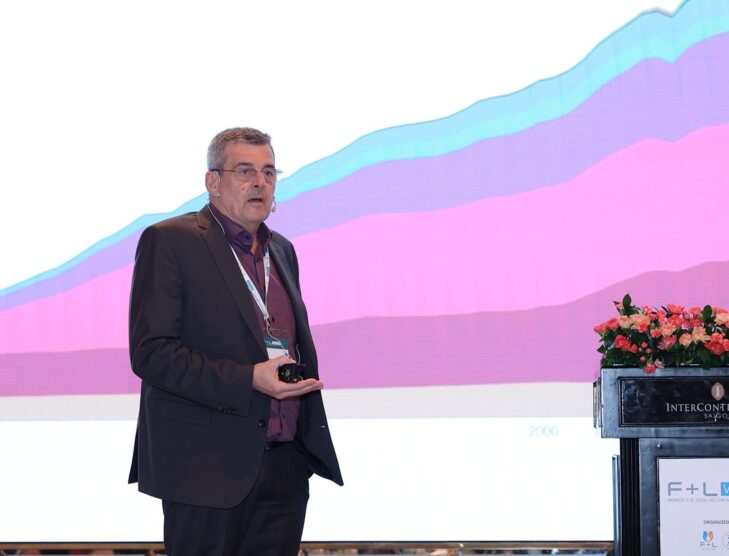
E-Fuels championed over batteries for storage
During the F+L Week 2024 conference, held on March 7-8 at the Intercontinental Saigon in Ho Chi Minh City, Vietnam, Stephan Baumgärtel, managing director of VSI, the German Lubricant Manufacturers Association, delivered a compelling message regarding the future of energy storage solutions.
Emphasizing the transition to Euro 7 standards and the role of e-fuels in the European Union’s (EU) green initiatives, Baumgärtel advocated for chemical storage systems over batteries, citing their superior efficiency.
He highlighted e-fuels as a promising solution, due to the abundance of excess wind energy available in sparsely populated regions with low energy demand. The concept of e-fuels can leverage surplus wind energy to produce environmentally friendly fuels for transportation to regions with higher demand for clean fuel alternatives.
Baumgärtel stressed the importance of legislation to facilitate the adoption of e-fuels, acknowledging their current higher cost compared to traditional fuels.
Existing EU legislation is a mixture of two strategies, taxation—making carbon dioxide emissions more expensive, and quotation—requiring certain amounts of energy from renewable sources. Baumgärtel provided an overview of existing EU legislation including EURO 7, which comes into force on July 1, 2025, for new light-duty vehicles.
Current energy taxation in the EU is volume-based, with the same tax for e-fuels and fossil fuels, says Baumgärtel. The VSI representative outlined proposed future revisions of the Energy Taxation Directive (ETD) that may improve the cost situation for e-fuels. The proposal introduces a new structure of tax rates based on energy source and energy content.
Conventional fossil fuels and non-sustainable biofuels are subject to a minimum rate of EUR10.75 (USD11.73) per gigajoule (GJ). Fossil fuels such as natural gas, LPG and non-sustainable biofuels have a minimum rate of EUR7.17 (USD7.82)/GJ, and sustainable, but not advanced biofuels (e.g. food based) face a minimum rate of EUR5.38 (USD5.87)/GJ.
The lowest minimum rate of EUR0.15 (USD0.16)/GJ applies to electricity, advanced sustainable biofuels and biogas, and renewable fuels of non-biological origin such as renewable hydrogen. E-fuels may fall in this category, says Baumgärtel.









